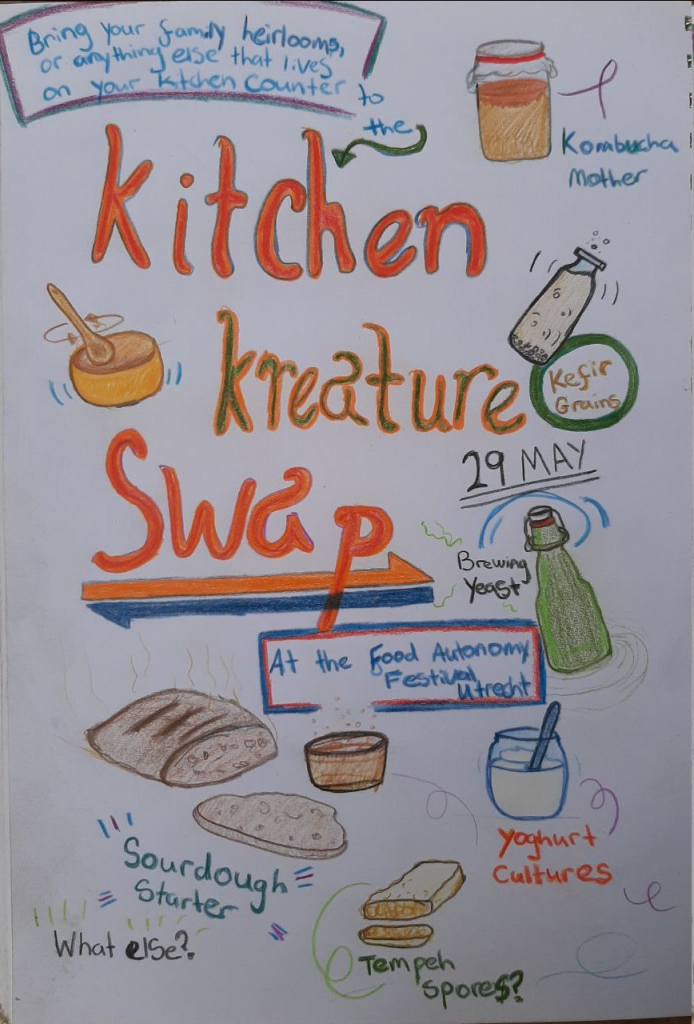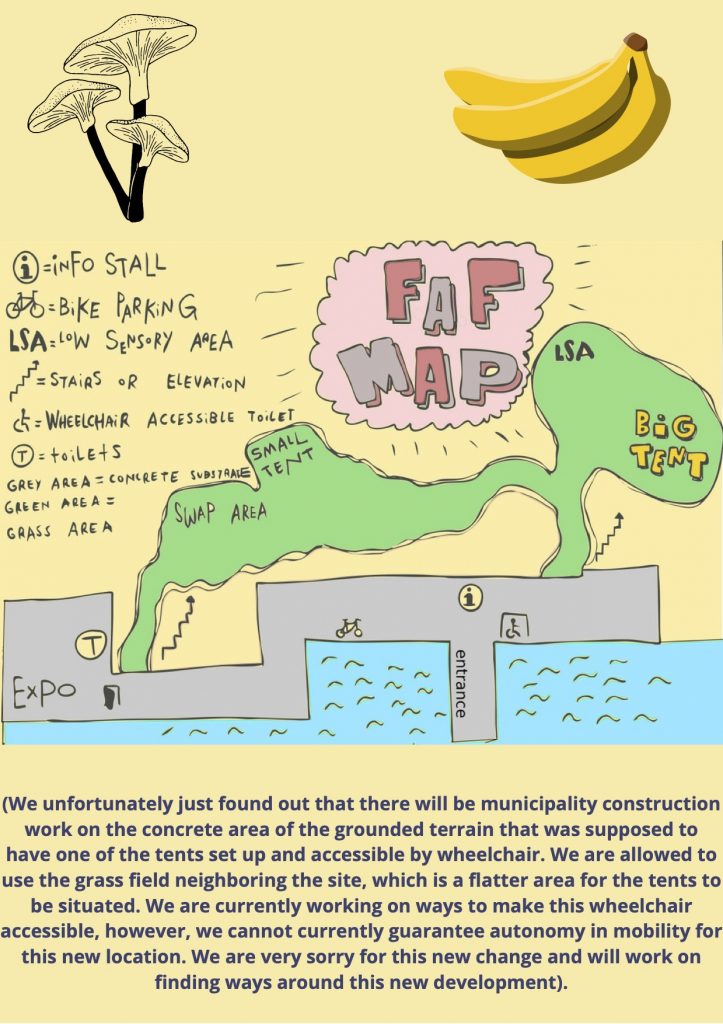
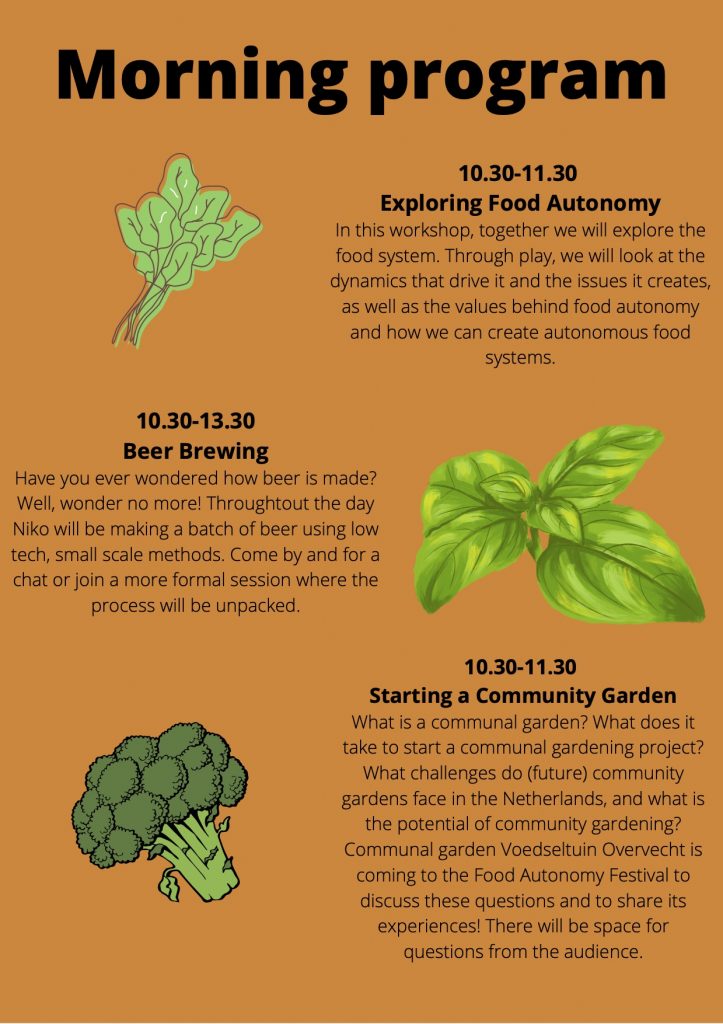
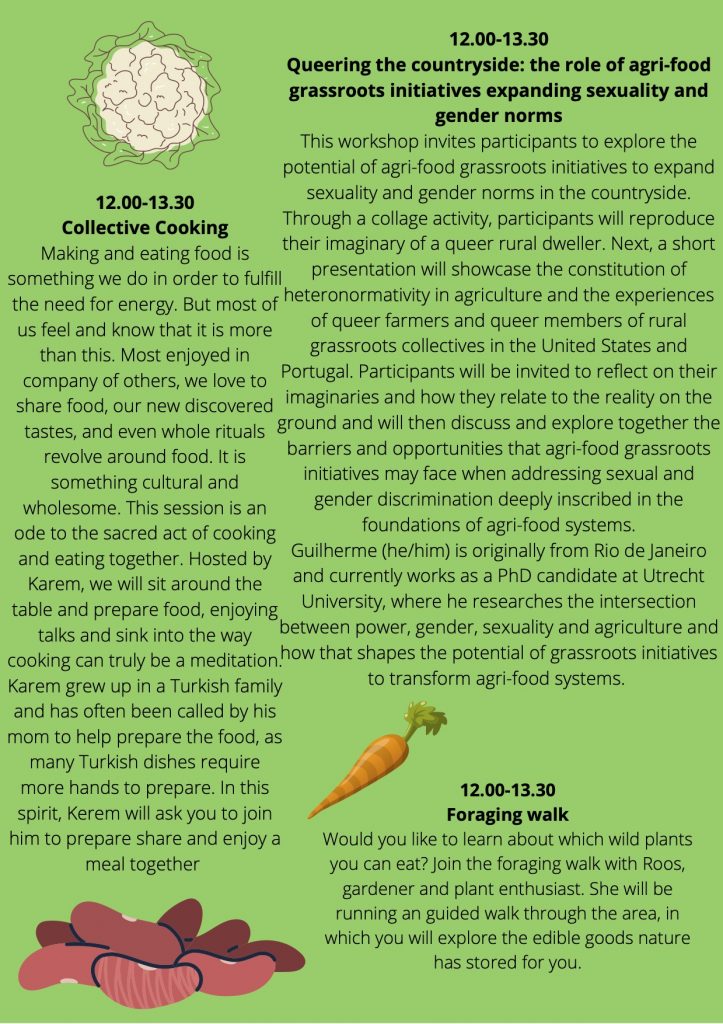
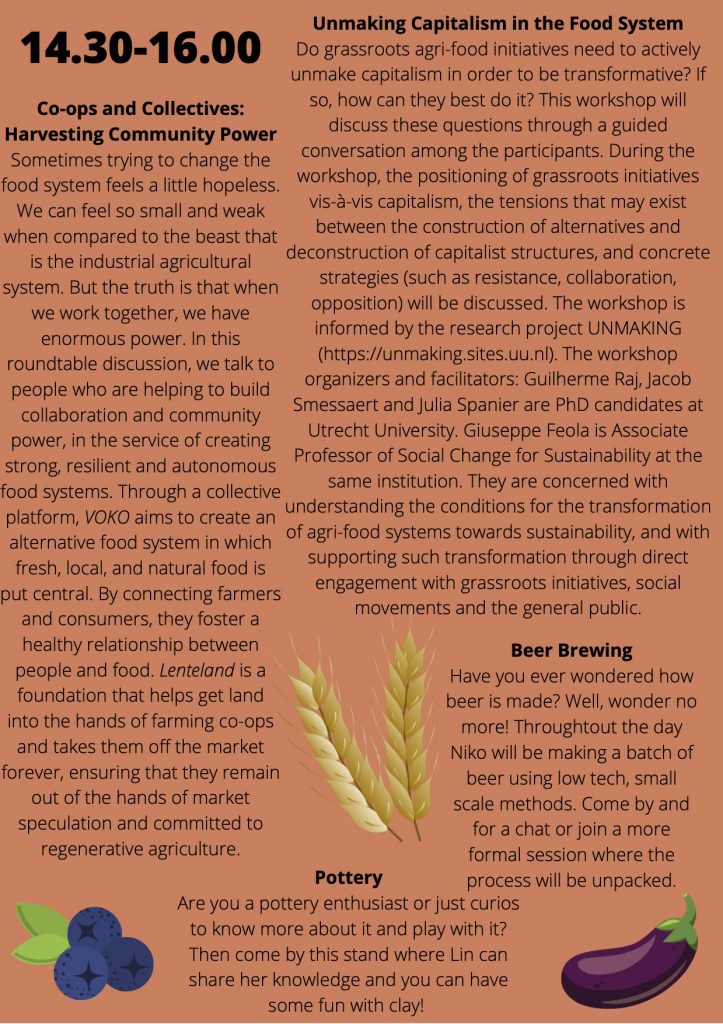
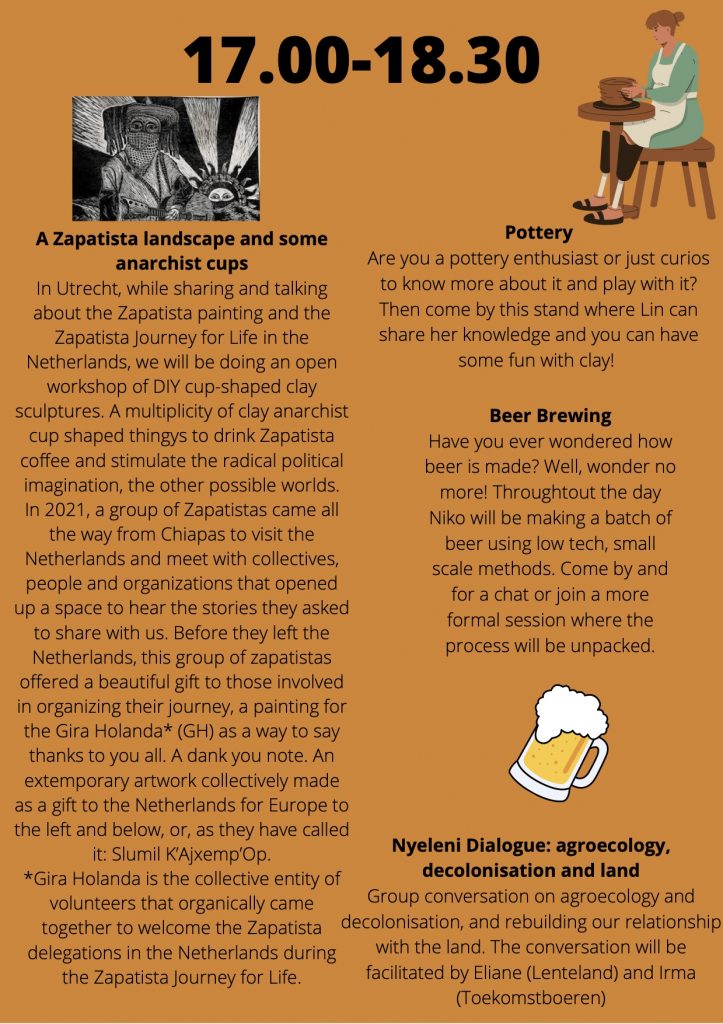
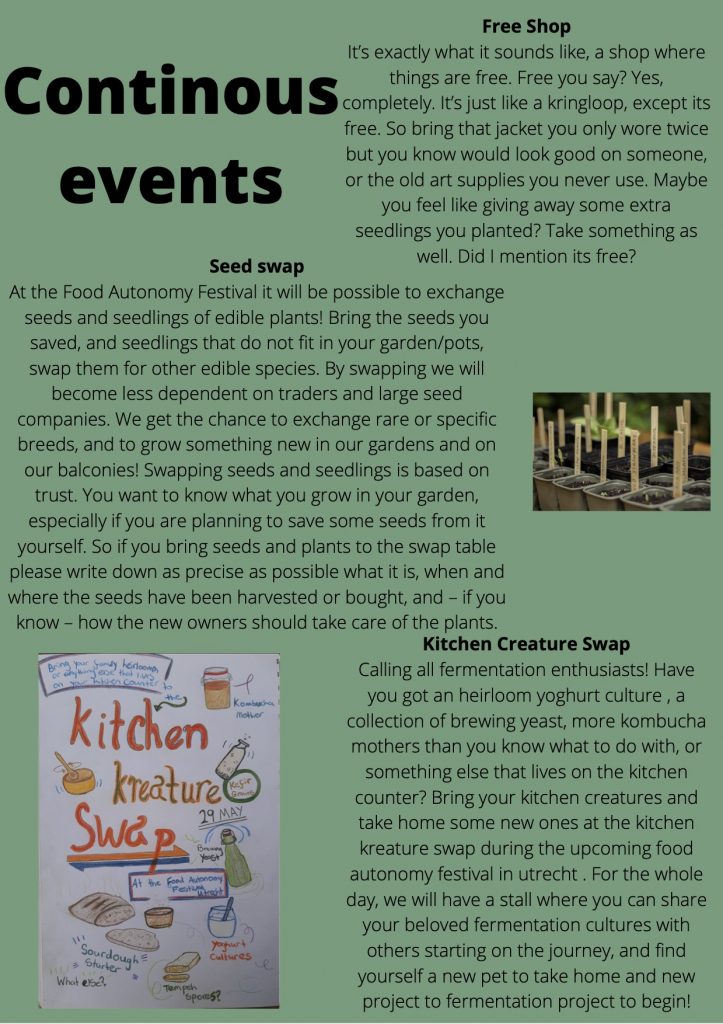
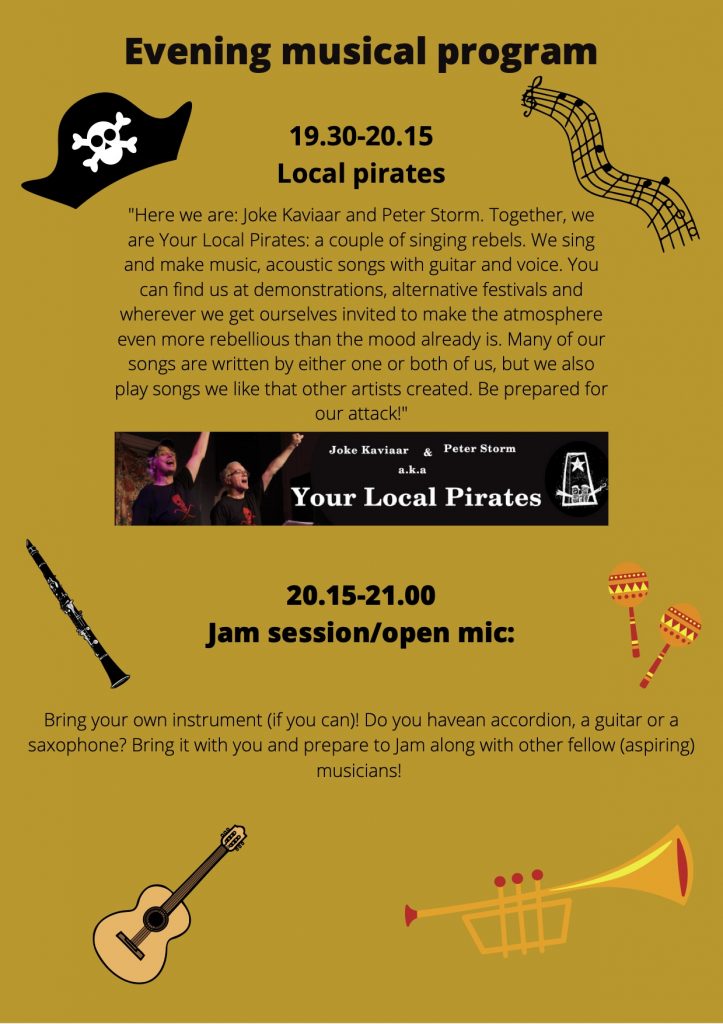
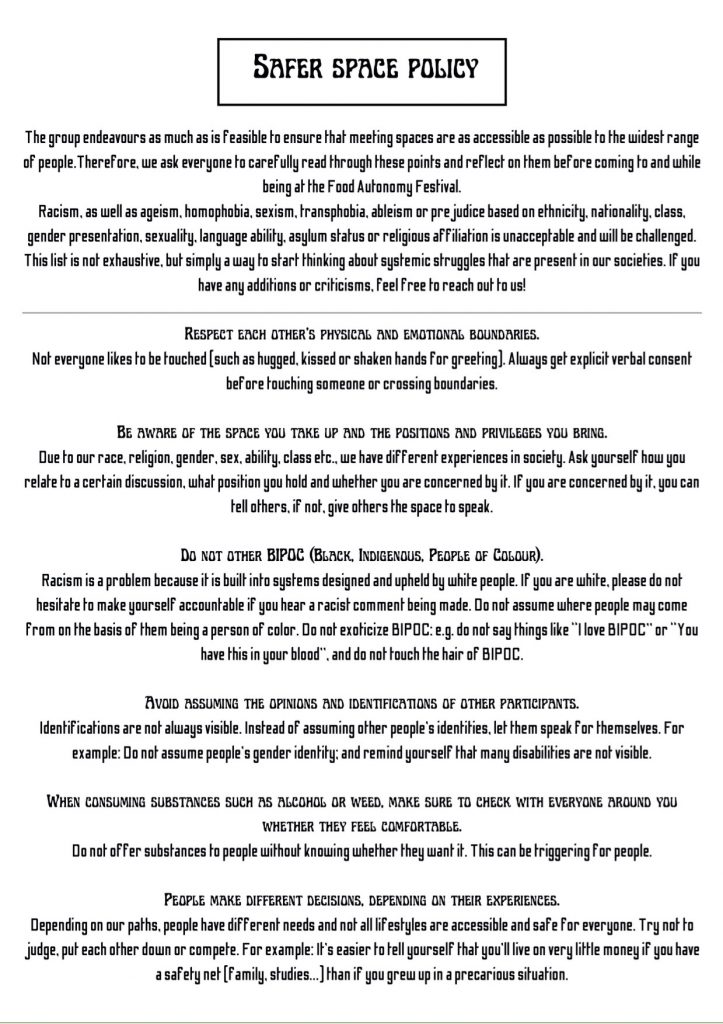
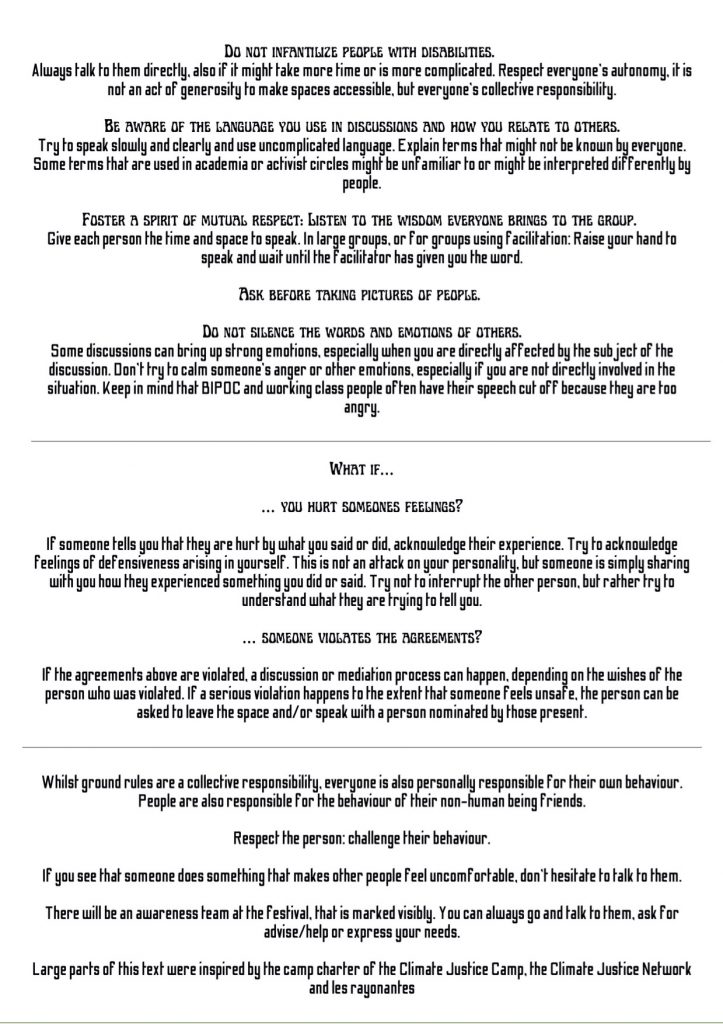
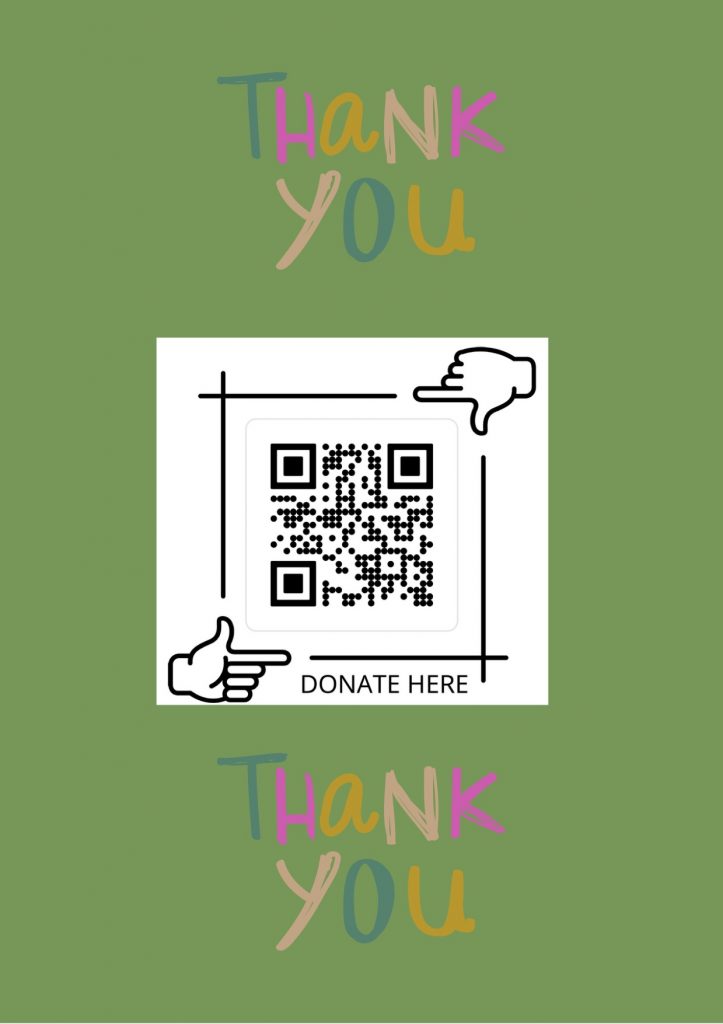
Friday
Dinner & food autonomy storytelling in Utrecht
When? 27 May, 18:30-22:00
Where? Kanaalstraat 225, 3531 CJ Utrecht
Please SIGN-UP for this event.
Saturday
Cycling tour to visit five vegetable gardens and farms
When? 28 May, time tba
Where? location tba
Sunday
When? 29 May 10:30 – 22:00
Where? Grounded, Foret Lunet 1, 3585 LD Utrecht

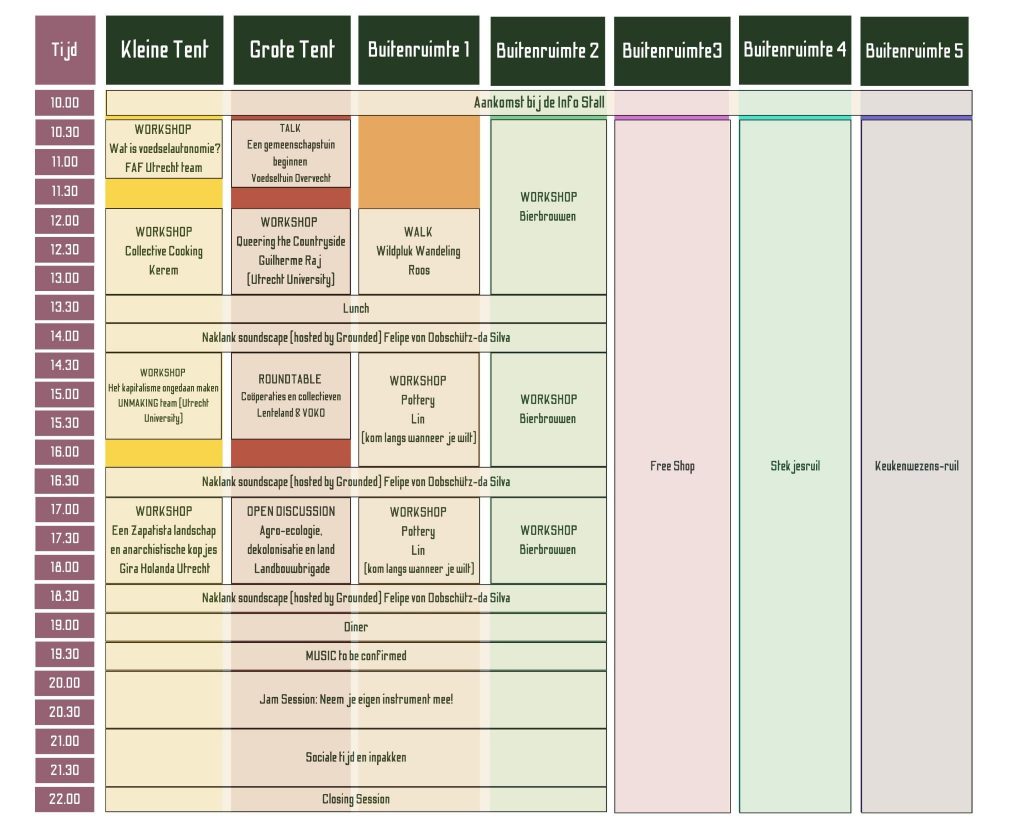
Workshop Descriptions
Beer Brewing/Bierbrouwen
Have you ever wondered how beer is made? Well, wonder no more! Throughtout the day Niko will be making a batch of beer using low tech, small scale methods. Come by and for a chat or join a more formal session where the process will be unpacked.
NEDERLANDS: Heb je je ooit afgevraagd hoe bier gemaakt wordt? Op zondat zal Niko de hele dag door bier maken met low tech en kleinschalige methodes. Kom langs voor een praatje of neem deel aan een meer formele sessie waar het proces zal worden omschreven.
Free Shop
It’s exactly what it sounds like, a shop where things are free. Free you say? Yes, completely. It’s just like a kringloop, except its free. So bring that jacket you only wore twice but you know would look good on someone, or the old art supplies you never use. Maybe you feel like giving away some extra seedlings you planted? Take something as well. Did I mention its free?
NEDERLANDS: Het is precies hoe het klinkt, een winkel waar alles gratis is. Gratis zeg je? Ja, helemaal. Het is net als een kringloop, behalve dat het gratis is. Dus neem dat jasje mee dat je maar twee keer gedragen hebt , of kunstmateriaal wat je nooit gebruikt. Misschien heb je zin om wat extra zaailingen weg te geven die je geplant hebt? En… misschien loop je zelf ook wel een te gek nieuw pak tegen het lijf!
Kitchen Creature Swap/Keukenwezen ruil
Calling all fermentation enthusiasts! Have you got an heirloom yoghurt culture , a collection of brewing yeast, more kombucha mothers than you know what to do with, or something else that lives on the kitchen counter? Bring your kitchen creatures and take home some new ones at the kitchen kreature swap during the upcoming food autonomy festival in utrecht . For the whole day, we will have a stall where you can share your beloved fermentation cultures with others starting on the journey, and find yourself a new pet to take home and new project to fermentation project to begin!
NEDERLANDS: Oproep aan alle fermentatie enthousiastelingen! Heb je een yoghurt cultuur, een verzameling brouwgist, kombucha moeders in overvloed, of iets anders dat op het aanrecht leeft? Breng je keukenbeesten naar het festival en neem nieuwe mee naar huis op de keukenbeestenruil tijdens het Food Autonomy Festival in Utrecht. We zullen de hele dag een kraam hebben waar je je geliefde fermentatieculturen kunt delen met anderen, en een nieuw huisdier mee naar huis kunt nemen zodat je een nieuw fermentatieproject kunt beginnen!
Seeds Swap
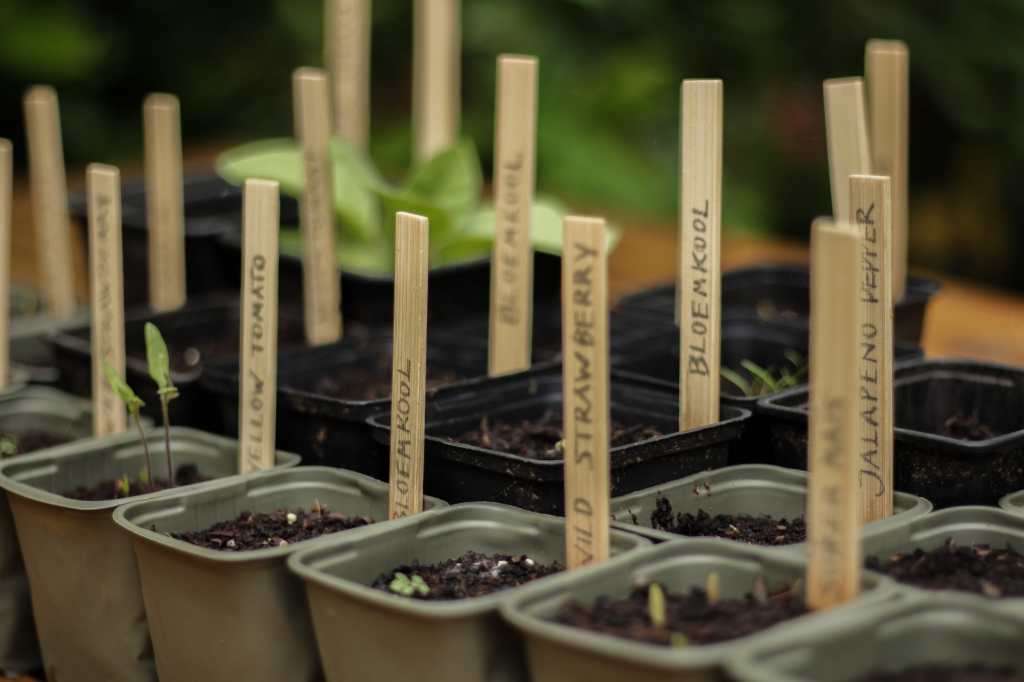
At the Food Autonomy Festival it will be possible to exchange seeds and seedlings of edible plants! Bring the seeds you saved, and seedlings that do not fit in your garden/pots, swap them for other edible species. By swapping we will become less dependent on traders and large seed companies. We get the chance to exchange rare or specific breeds, and to grow something new in our gardens and on our balconies! Swapping seeds and seedlings is based on trust. You want to know what you grow in your garden, especially if you are planning to save some seeds from it yourself. So if you bring seeds and plants to the swap table please write down as precise as possible what it is, when and where the seeds have been harvested or bought, and – if you know – how the new owners should take care of the plants.
NEDERLANDS: Heb je zin om iets nieuws te kweken in je tuin of op je balkon? Op het Food Autonomy Festival kun je zaden en zaailingen van eetbare planten ruilen! Neem zaden mee die je hebt bewaard, zaailingen die niet meer in je tuin of op je balkon passen kun je omruilen voor zaailingen van andere eetbare soorten. Zeldzame, inheemse of bijzondere rassen zijn zeer welkom! Door zaden en planten te ruilen worden we minder afhankelijk van handelaren en grote zaadbedrijven. Het ruilen van zaden en zaailingen is gebaseerd op vertrouwen. Je wilt weten wat je in je tuin kweekt, vooral als je van plan bent om er zelf zaden van te gaan bewaren. Dus als je zaden en planten meeneemt naar de ruiltafel schrijf dan alsjeblieft zo precies mogelijk op wat het is, wanneer en waar de zaden zijn geoogst of gekocht, en – als je het weet – hoe de nieuwe eigenaren voor de plantjes moeten zorgen.
Community Cooking
Making and eating food is something we do in order to fulfill this need for energy of our bodies. But most of us feel and know that it has become more than this. It is most enjoyed in company with others, we love to share food, our new discovered tastes and even whole rituals revolve around food. It is something cultural and wholesome. Our grandparents used to spend a whole afternoon on making a simple dish, simply for the joy of sharing it with loved ones. They would also not be alone in it, because most of the time the cooking was done together, in a communal way. This session is an ode to the sacred act of cooking and eating together. We will sit around the table and prepare food, enjoying talks and sink into the way cooking can truly be a meditation. It will be facilitated by Kerem Akar. Kerem grew up in a Turkish family and has often been called by his mom to help prepare the food. There are many Turkish dishes that simply need more hands to make them, so this workshop is brought into life by Kerem, simply for his own wish to be able to share and enjoy it together with others.
Unmaking Capitalism in the Food System/Het kapitalisme ongedaan maken: in het voedselsysteem
Do grassroots agri-food initiatives need to actively unmake capitalism in order to be transformative? If so, how can they best do it? This workshop will discuss these questions through a guided conversation among the participants. The participants will be invited to exchange and reflect upon their experience in the construction of alternatives to the dominant capitalist agri-food system. The conversation will address the positioning of grassroots initiatives vis-à-vis capitalism, the tensions that may exist between construction of alternatives and deconstruction of capitalist structures, and concrete strategies, such as resistance, collaboration, opposition, and more. The workshop is informed by the research project UNMAKING (https://unmaking.sites.uu.nl). The workshop organizers and facilitators: Guilherme Raj, Jacob Smessaert and Julia Spanier are PhD candidates at Utrecht University. Giuseppe Feola is Associate Professor of Social Change for Sustainability at the same institution. They are concerned with understanding the conditions for the transformation of agri-food systems towards sustainability, and with supporting such transformation through direct engagement with grassroots initiatives, social movements and the general public.
NEDERLANDS: Moeten grassroots agrovoedingsinitiatieven het kapitalisme actief ontmaskeren om transformatief te zijn? Zo ja, hoe kunnen ze dat het beste doen? Deze workshop zal deze vragen bespreken aan de hand van een geleid gesprek tussen de deelnemers. De deelnemers worden uitgenodigd om hun ervaringen met de opbouw van alternatieven voor het dominante kapitalistische agro-voedsel systeem uit te wisselen en erop te reflecteren. Het gesprek zal gaan over de positionering van grassroots initiatieven ten opzichte van het kapitalisme, de spanningen die kunnen bestaan tussen de constructie van alternatieven en de deconstructie van kapitalistische structuren, en concrete strategieën, zoals verzet, samenwerking, oppositie, en meer. De workshop is gebaseerd op het onderzoeksproject UNMAKING (https://unmaking.sites.uu.nl). De organisatoren en facilitatoren van de workshop zijn: Guilherme Raj, Jacob Smessaert en Julia Spanier (promovendi aan de Universiteit Utrecht). Giuseppe Feola is universitair hoofddocent Sociale Verandering voor Duurzaamheid aan dezelfde instelling. Zij houden zich bezig met het begrijpen van de voorwaarden voor de transformatie van agro-voedselsystemen in de richting van duurzaamheid, en met het ondersteunen van een dergelijke transformatie door middel van directe betrokkenheid bij basisinitiatieven, sociale bewegingen en het grote publiek.
Foraging walk/Wildplukwandeling
Would you like to learn about which wild plants you can eat? Join the foraging walk with Roos, gardener and plant enthusiast. She will be running an guided walk through the area, in which you will explore the edible goods nature has stored for you.
NEDERLANDS: Wil je leren welke wilde planten je kunt eten? Ga dan mee op foerageerwandeling met Roos, hovenier en plantenliefhebber. Zij verzorgt een wandeling door het gebied onder leiding van een gids, waarin je op zoek gaat naar de eetbare waar die de natuur voor je heeft opgeslagen.
Queering the countryside: the role of agri-food grassroots initiatives expanding sexuality and gender norms/Queering the countryside: de rol van alternative landbouw initiativen in het verrijken van sexualiet en gendernormen
This workshop invites participants to explore the potential of agri-food grassroots initiatives to expand sexuality and gender norms in the countryside. Through a collage activity, participants will reproduce their imaginary of a queer rural dweller. Next, a short presentation will showcase the constitution of heteronormativity in agriculture and the experiences of queer farmers and queer members of rural grassroots collectives in the United States and Portugal. This presentation will be an invitation for participants to reflect on their imaginaries and how they relate to the reality on the ground. We end with small group discussions on the barriers and opportunities that agri-food grassroots initiatives may face when addressing sexual and gender discrimination deeply inscribed in the foundations of agri-food systems.
Guilherme (he/him) is originally from Rio de Janeiro and currently works as a PhD candidate at Utrecht University. He is particularly interested in the intersection between power, gender, sexuality and agriculture and how that shapes the potential of grassroots initiatives to transform agri-food systems. Beyond research, Guilherme is a member of the cooperative Rizoma in Lisbon, where he has organised artistic and practical workshops to reflect on this topic with other members.
NEDERLANDS: Deze workshop nodigt deelnemers uit om het potentieel te verkennen van grassroots initiatieven in de landbouw- en voedselsector om gendernormen en seksuele identiteiten op het platteland te verruimen. In deze creatieve workshop gaan deelnemers door middel van een collage hun eigen beeld van een queer plattelandsbewoner verkennen. Guilherme zal daarna een korte presentatie geven over heteronormativiteit in de landbouw gebaseerd op ervaringen van queer boeren en queer leden van grassroots iniatieven in de Verenigde Staten en Portugal. Middels deze sessie worden deelnemers uitgedaagd hun na te denken over hun eigen verbeelding en assumpties— diep verankert in de fundamenten van de landbouw – en voedselsector, en hoe ze zich verhouden tot de praktijk. We eindigen met groepsdiscussies over de hindernissen en kansen die grassroots initiatieven in de landbouw- en voedselsector ervaren wanneer ze discriminatie op basis van seksualiteit en gender aankaarten en aanpakken.
Guilherme (hij/hem) komt oorspronkelijk uit Rio de Janeiro en werkt momenteel als promovendus aan de Universiteit Utrecht. Hij werkt op het snijvlak tussen macht, gender, seksualiteit en landbouw en onderzoekt hoe dit vormgeeft aan transformaties binnen de landbouw- en voedselsector. Naast onderzoeker is ook Guilherme lid van de coöperatie Rizoma in Lissabon, waar hij creatieve workshops organiseert om met leden na te denken over deze onderwerpen.
Co-ops and Collectives: Harvesting Community Power/Coöperaties en collectieven: Het oogsten van gemeenschapskracht
Sometimes trying to change the food system feels a little hopeless. We can feel so small and weak when compared to the beast that is the industrial agricultural system. But the truth is that when we work together, we have enormous power. In this roundtable discussion, we talk to people who are helping to build collaboration and community power, in the service of creating strong, resilient and autonomous food systems. Representatives from the VOKO and Lenteland will talk about the work they are doing, go through some guided discussion, and field some questions from the audience. VOKO: Through an inspiring, collective platform, VOKO wants to create an alternative food system in which fresh, local and natural food is put central. By connecting farmers and consumers and sharing our story within (and outside) Utrecht, we realize a healthy relationship between people and food. Lenteland: Access to land is one of the biggest hurdles that can prevent aspiring farmers from beg their regenerative projects. Lenteland is a foundation that helps get land into the hands of farming co-ops and takes them off the market forever, ensuring that they remain out of the hands of market speculation and committed to regenerative agriculture.
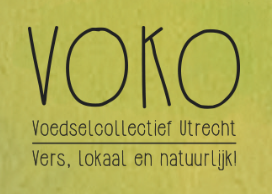
NEDERLANDS: Soms voelt het een beetje hopeloos om te proberen het voedselsysteem te veranderen. We kunnen ons zo klein en zwak voelen in vergelijking met het beest dat het industriële landbouwsysteem is. Maar de waarheid is dat als we samenwerken, we een enorme macht hebben. In dit rondetafelgesprek praten we met mensen die helpen bij het opbouwen van samenwerking en gemeenschapsmacht, in dienst van het creëren van sterke, weerbare en autonome voedselsystemen. Vertegenwoordigers van de VOKO en Lenteland zullen vertellen over het werk dat ze doen, een geleide discussie voeren en vragen beantwoorden van de aanwezigen. VOKO: Via een inspirerend, collectief platform wil VOKO een alternatief voedselsysteem creëren waarin vers, lokaal en natuurlijk voedsel centraal staat. Door boeren en consumenten te verbinden en ons verhaal te delen binnen (en buiten) Utrecht, realiseren we een gezonde relatie tussen mens en voedsel. Lenteland: Toegang tot land is een van de grootste hindernissen die aspirant-boeren kan weerhouden van het starten van hun regeneratieve projecten. Lenteland is een stichting die land in handen helpt te krijgen van boerencoöperaties en ze voorgoed van de markt haalt, zodat ze uit de handen van marktspeculatie blijven en zich inzetten voor regeneratieve landbouw.
Starting a Community Garden
What is a communal garden? What does it take to start a communal gardening project? What challenges do (future) community gardens face in the Netherlands, and what is the potential of community gardening? Communal garden Voedseltuin Overvecht is coming to the Food Autonomy Festival to discuss these questions and to share its experiences! There will be space for questions from the audience.
NEDERLANDS: Wat is een gemeenschappelijke tuin? Wat is er nodig om een gemeenschappelijk tuinproject te starten? Voor welke uitdagingen staan (toekomstige) gemeenschappelijke tuinen in Nederland, en wat is het potentieel van gemeenschappelijk tuinieren? Gemeenschappelijke tuin Voedseltuin Overvecht komt naar het Food Autonomy Festival om over deze vragen te discussiëren en om haar ervaringen te delen! Er zal ruimte zijn voor vragen uit het publiek.
Exploring Food Autonomy/Introductie over voedselautonomie
In this workshop, together we will explore the food system. Through play, we will look at the dynamics that drive it and the issues it creates, as well as the values behind food autonomy and how we can create autonomous food systems.
NEDERLANDS: In deze workshop zullen we samen het voedselsysteem verkennen. Door te spelen zullen we kijken naar de dynamiek die het voedselsysteem drijft en de problemen die het creëert, maar ook naar de waarden achter voedselautonomie en hoe we autonome voedselsystemen kunnen creëren.
A Zapatista landscape and some anarchist cups
In Utrecht, while sharing and talking about the Zapatista painting and the Zapatista Journey for Life in the Netherlands, we will be doing an open workshop of DIY cup-shaped clay sculptures. A multiplicity of clay anarchist cup shaped thingys to drink Zapatista coffee and stimulate the radical political imagination, the other possible worlds.
In 2021, a group of Zapatistas came all the way from Chiapas to visit the Netherlands and meet with collectives, people and organizations that opened up a space to hear the stories they asked to share with us. Before they left the Netherlands, this group of zapatistas offered a beautiful gift to those involved in organizing their journey, a painting for the Gira Holanda* (GH) as a way to say thanks to you all. A dank you note. An extemporary artwork collectively made as a gift to the Netherlands for Europe to the left and below, or, as they have called it: Slumil K’Ajxemp’Op.
*Gira Holanda is the collective entity of volunteers that organically came together to welcome the Zapatista delegations in the Netherlands during the Zapatista Journey for Life.
Nyeleni Dialogue: agroecology, decolonisation and land / Nyeleni-dialoog: agro-ecologie, dekolonisatie en land
Group conversation on agroecology and decolonisation, and rebuilding our relationship with the land.
NEDERLANDS: Groepsgesprek over agro-ecologie en dekolonisatie, en de wederopbouw van onze relatie met het land

